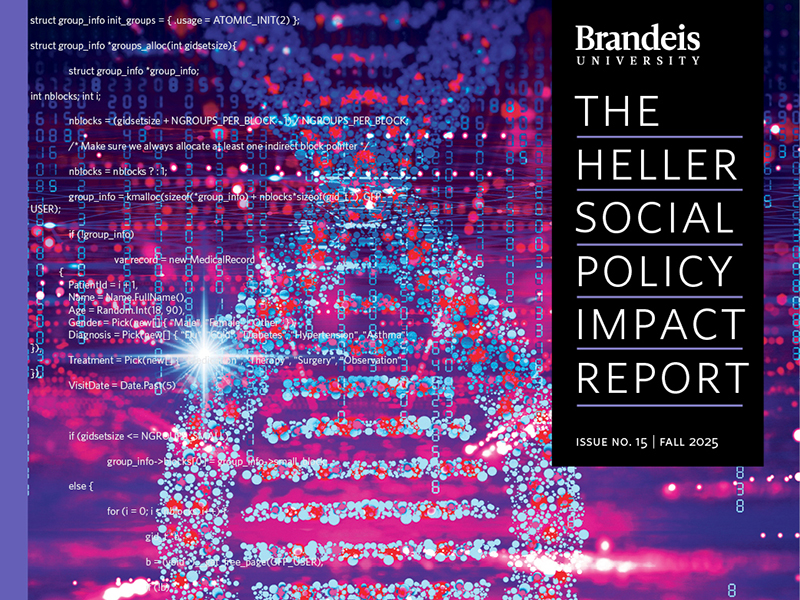Unlike other degree programs that cover a range of policy areas, the Heller Master of Public Policy (MPP) program focuses specifically on domestic social policy. It starts with learning how to conduct sophisticated structural analysis, because if students want to create systemic change, they need to think beyond current structures. MPP students also select a specific policy concentration, ranging from economic and racial equity to health policy to environmental justice, to develop a deeper understanding of the areas they’re most passionate about, and all students gain experience on the ground through internships. By the time they leave Heller, MPP graduates know the language, the literature and the networks they need to create social change locally and nationwide. This in-residence program can be taken either full-time or part-time.
The MS in Global Health Policy and Management (MS) program is for students who want to understand how health systems are designed and function, and more specifically, how they can be structured to improve health outcomes for people around the world. The Heller MS program differs from a master’s in public health because it places health policy and health systems at the center, with a heavy focus on analytics, design and management. The program’s faculty believe that effective policy is critical to expanding access to high quality health care for all individuals who need care. This is a full-time in-residence program.
The
Master of Arts in Global Sustainability Policy and Management is a one-year program that is deeply aligned with the United Nations Sustainable Development Goals. The program is two semesters of coursework followed by a summer practicum.
Research is the means to an end for students in Heller’s PhD in Social Policy program. They do more than just gather data to form new knowledge—they use that knowledge to inform and influence the policymakers and practitioners who are effecting structural change. During the course of the program—in which every full-time student receives tuition and stipend support—students focus on a concentration that aligns with their long-term interests, while also learning alongside students across concentration areas, thereby gaining a multifaceted perspective on critical social policy issues. This is a full-time in-residence program.
Students in dual degree programs fulfill the complete requirements for each degree, earning degrees for both programs. Joint degree programs are created by special agreement between programs, allowing students to fulfill a modified set of requirements. Please note that students in joint degree programs earn only one degree.
Dual degrees with Brandeis programs:
Joint degrees with Brandeis programs:
The Heller School’s Executive MBA for Physicians (EMBA) is focused on improving both clinical outcomes and financial results in health care organizations by training physician-leaders in the new science of medical management. Designed for practicing physicians who are—or seek to be—in positions of management or leadership, the EMBA for Physicians is an accelerated 16-month program and a curriculum that integrates the student's medical expertise with new knowledge in critical areas ranging from health policy and economics to operational systems management, high performance leadership, and healthcare innovation.


